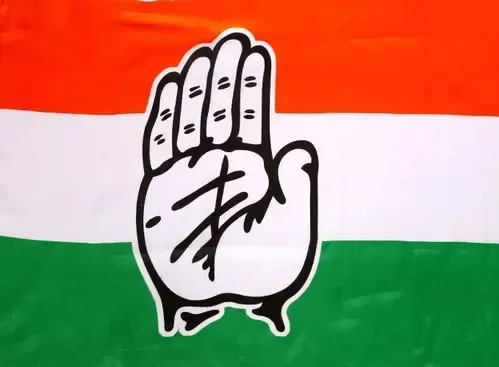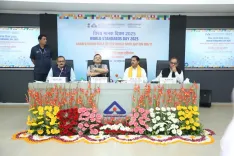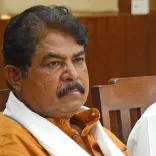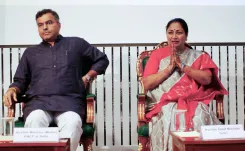Is a 'Reset' Happening in India-Canada Relations with Foreign Minister Anand's Visit?
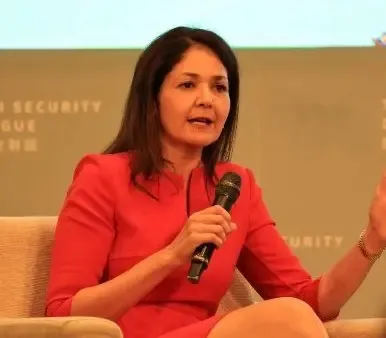
Synopsis
Key Takeaways
- Anita Anand's visit to India marks a pivotal moment in India-Canada relations.
- A new roadmap has been agreed upon to strengthen ties.
- Focus areas include critical minerals, trade, and technology.
- Both countries are prioritizing economic resilience and partnerships.
- Optimism surrounds future cooperation and opportunities.
Washington, Oct 14 (NationPress) As India and Canada forge a new path for their relationship, a prominent authority on Canadian foreign policy asserts that a "reset" is on the horizon for bilateral relations. The recent visit of Canada's Foreign Minister Anita Anand to India marks a crucial milestone.
In an exclusive interview with IANS from Vancouver, Vina Nadjibulla, the Vice-President of Research & Strategy at the Asia Pacific Foundation of Canada, described these discussions as "a significant development."
"This is a major turning point in Canada-India relations, which have improved considerably compared to the low point experienced a year ago. Just a year back, both nations were expelling diplomats, resulting in a strained relationship," she stated.
During her visit, the Canadian Foreign Minister engaged with Prime Minister Narendra Modi and External Affairs Minister S Jaishankar, pledging to enhance their bilateral ties.
"Both governments recognize the necessity of elevating the relationship further," she remarked while meeting with EAM Jaishankar.
Following their discussions, both parties released a joint statement committing to "implement coordinated measures aimed at restoring stability in their relationship and fostering a constructive and balanced partnership."
They also concurred on the need to revive bilateral mechanisms focused on trade, investment, and cooperation in science and technology.
In light of recent Chinese export restrictions on rare earth materials, both nations are set to initiate the inaugural Critical Minerals Annual Dialogue early next year to facilitate discussions among "government, industry, and think tanks on how Canada’s mining expertise can support India's energy security needs."
Nadjibulla, who also serves as an Adjunct Professor at the University of British Columbia, labeled this as an "ambitious roadmap" and emphasized the significance of collaboration in the critical minerals domain.
"This was already indicated by the two prime ministers in June. Prime Minister Modi participated in discussions regarding energy security and critical minerals, suggesting that this area would be vital moving forward. The explicit mention of this cooperation in the joint statement reflects the growing momentum," she noted.
At present, both Canada and India are experiencing elevated tariffs from the United States and continue to negotiate trade agreements with Washington. Nadjibulla acknowledged the "Trump effect" in bringing New Delhi and Ottawa closer, while also suggesting that a change in leadership in Canada has paved the way for renewed engagement.
"Context is crucial, and both governments have acknowledged their prioritization of economic resilience, de-risking supply chains, and diversifying their partnerships," she added.
"The change in leadership in Canada has underscored the necessity for a constructive relationship with India as Canada pursues its Indo-Pacific strategy. Similarly, India acknowledges the need for alternatives as it seeks to strengthen its economy without relying heavily on Chinese integration," she emphasized.
Last month, Canadian Prime Minister Mark Carney indicated that the country aims to attract workers affected by the H-1B visa restrictions in the United States.
Nonetheless, the joint statement did not address immigration or visas. Nadjibulla stated that it would take "some additional time" to tackle these topics, but anticipates forthcoming announcements from Canada.
"There is a recognition that there is much more potential for collaboration, especially in fields like AI and technology, which would necessitate talent exchange and movement of individuals. This is an area to monitor closely, particularly in anticipation of the AI Action Summit scheduled for February in Delhi," she pointed out.
Discussing Canada’s Indo-Pacific Strategy, which identifies India as a key collaborator, Nadjibulla remarked that while Canada is becoming "more active and visible" in the region, Europe and the Arctic remain its primary strategic focuses.
"It has politically signaled its commitment to being a reliable partner in the Indo-Pacific. However, we need to observe how this strategy may be adjusted or reprioritized. Questions remain about the extent of resources Canada can allocate to the Indo-Pacific, with early indications suggesting that Euro-Atlantic, Arctic, and Indo-Pacific are prioritized in that order. Thus, it remains third on the list," she explained.
Nadjibulla remains optimistic that despite these limitations, India and Canada can make strides toward realizing the full potential of their partnership.
"We are currently witnessing a surge of momentum and enthusiasm aimed at revitalizing this relationship, with the objective of building a more resilient partnership. Ultimately, this relationship must align with the national interests of both nations, generating jobs, investments, and economic opportunities for both sides. There is immense potential here," she concluded.




